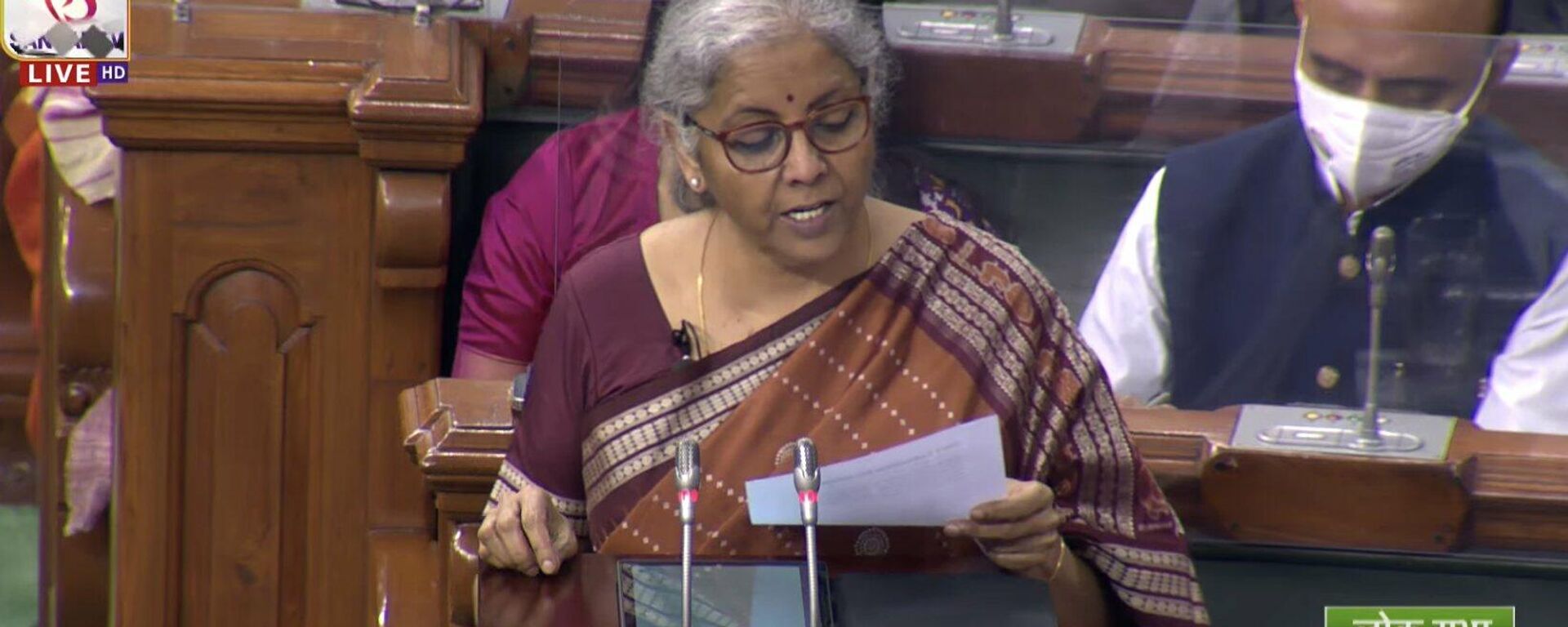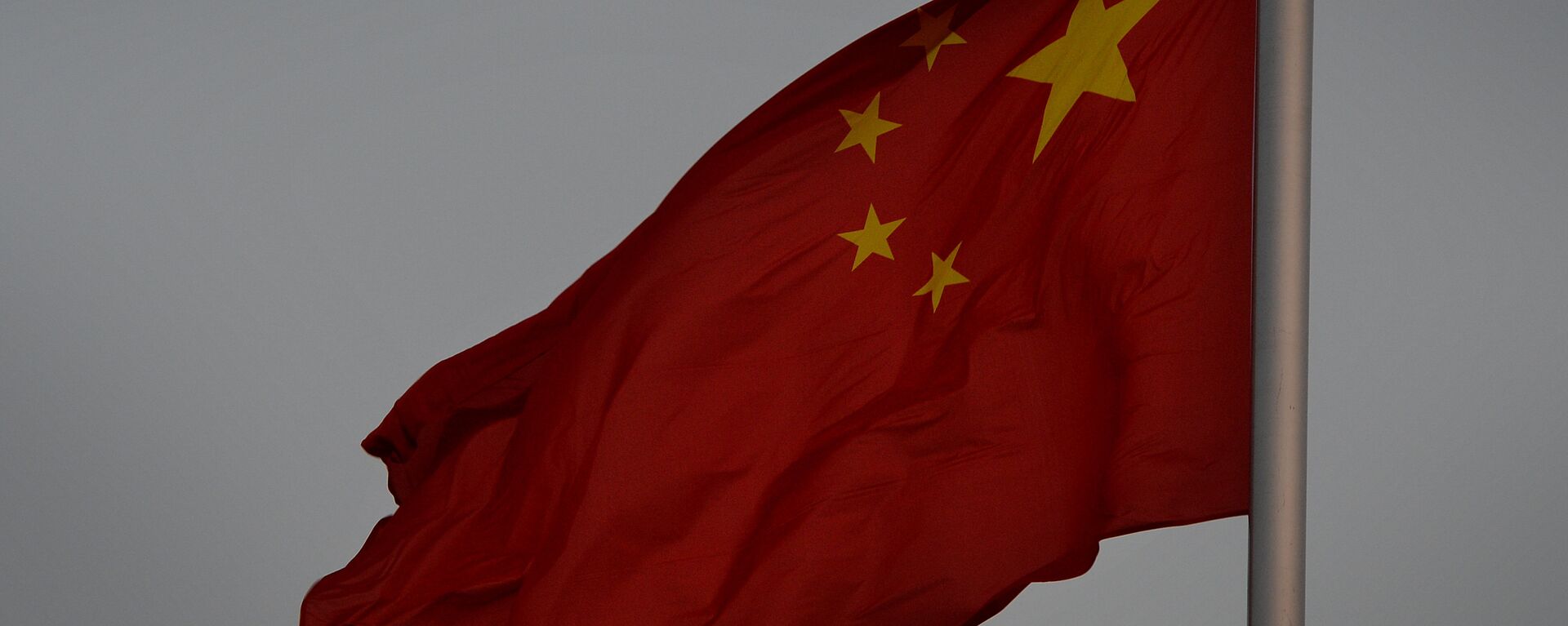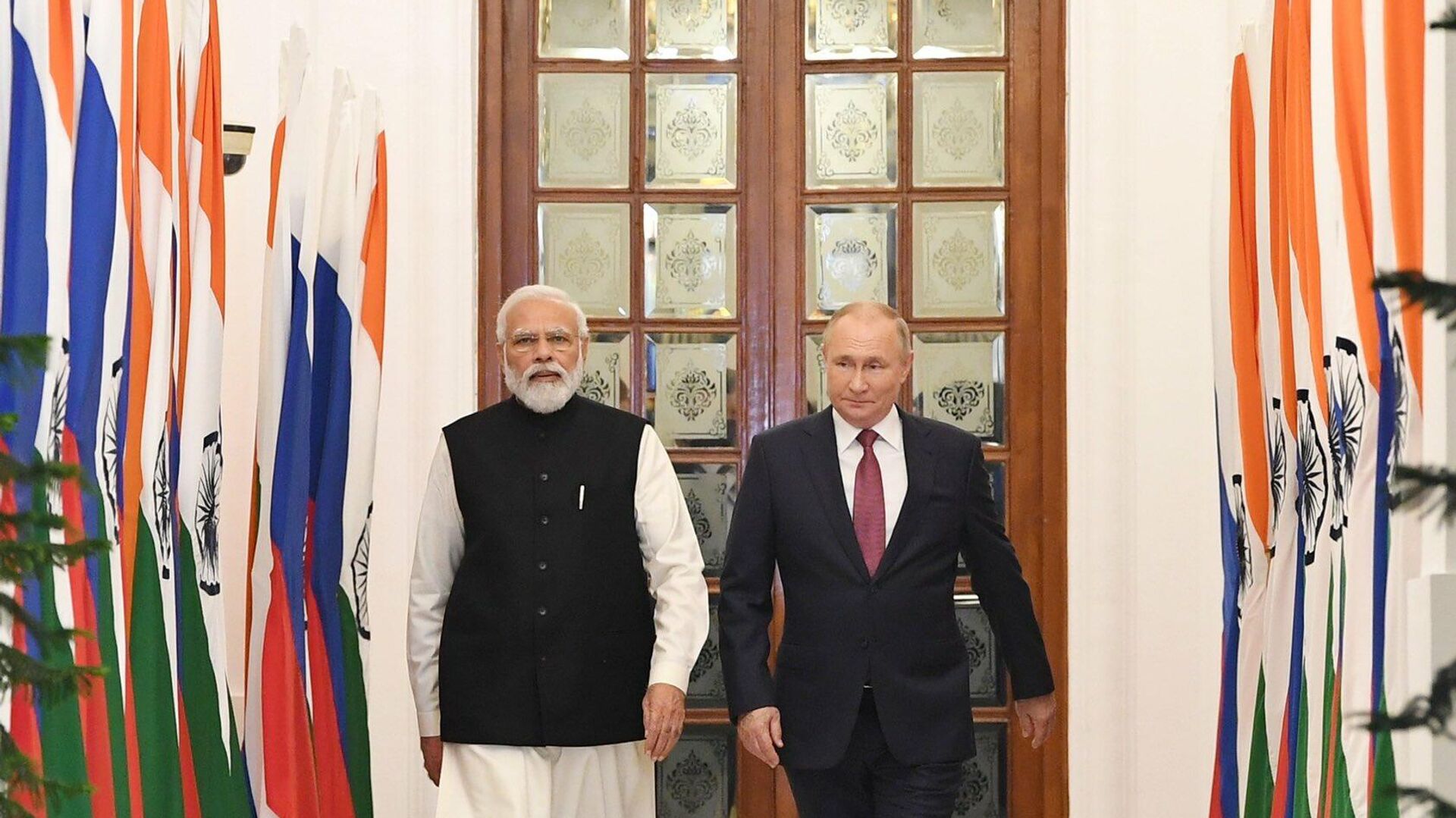https://sputnikglobe.com/20220211/india-russia-can-use-digital-currencies-to-avoid-possible-us-sanctions-over-ukraine-says-expert-1092711088.html
India, Russia Can Use Digital Currencies to Avoid Possible US Sanctions Over Ukraine, Says Expert
India, Russia Can Use Digital Currencies to Avoid Possible US Sanctions Over Ukraine, Says Expert
Sputnik International
For the past several months, the US, the UK, and some European countries have been accusing Russia of planning an "invasion" of Ukraine by amassing troops near... 11.02.2022, Sputnik International
2022-02-11T16:13+0000
2022-02-11T16:13+0000
2022-11-18T13:40+0000
russia
ukraine crisis
nato
caatsa
us sanctions
europe
military
s-400
us
ukraine
https://cdn1.img.sputnikglobe.com/img/07e5/0c/07/1091304553_0:550:1686:1498_1920x0_80_0_0_988b2d6aa712adf286beb7f110abdd67.jpg
India is on thin ice regarding the ongoing Ukrainian crisis, having abstained from voting on the US-led move at the UN Security Council on 31 January, and asserting that the "legitimate security interests of all countries" should be considered. New Delhi also urged the countries involved to de-escalate tensions through peaceful dialogue.So far, the US and UK have taken a hawkish stand on the crisis, whereas countries such as France and Turkey have rushed to mediate to ease the tensions.India's trade and strategic interests are highly dependent on the US and European nations although two-thirds of the Indian Army's arms and weapons are of Soviet origin, making it heavily reliant on Russia and Ukraine as well.New Delhi may face problems in making payments related to trade and defence-equipment purchase as the US is threatening Russia with "the mother of all sanctions" if it invades Ukraine, something Moscow has long said is not going to happen.Sputnik spoke with Aditya Pareek, a research analyst at the Takshashila Institution, a Bengaluru-based independent think-tank and public-policy school, about how the ongoing tensions will affect India's interests in general.Sputnik: What kind of difficulties may India face if tensions escalate, considering New Delhi has a massive military equipment dependency on Russia as well as Ukraine?Aditya Pareek: In the case of a conflict involving Russia and Ukraine, India would have to balance its ties with both countries. India really doesn't want to alienate Ukraine, as much of its military equipment of Soviet/Russian origin also depends on components sourced from Ukraine.The reliance extends to gas turbines installed in many Indian Navy warships, AN-32 transport aircraft, which need Ukrainian facilities, and components and expertise for their maintenance and overhaul. India's Russian-origin Mi 17 and Mi 35 helicopter fleets also depend on Ukrainian engines.With Ukrainian collaboration, India has also developed a semi-cryogenic engine for its space programme.It is hard to predict how much of this military-technical capability Ukraine will retain for its own use, should there be conflict between it and Russia.Sputnik: Will this issue also pose challenges of strategic balancing between Russia and the US for New Delhi?Aditya Pareek: India will probably be pressured by the US not to make any more defence deals with Russia. India's present approach to selecting defence systems that fit its technical requirements best at the right price may cause the US to regard India as an unreliable ally. The US has yet to confirm whether India will get a waiver on the S-400 deal with Russia. If a narrative painting India as a potential enabler of Russia is spun in the US with filibusters and mass media dissemination, there is a chance that public opinion could turn against India receiving a CAATSA waiver.Sputnik: How similar is the present scenario for India to 2014 when Crimea's reunification with Russia happened?Aditya Pareek: It is uncertain whether India would continue to recognise Russian interests, or whether there would be a limit past which India would no longer be able to negotiate a balance between supporting Russia without alienating Ukraine. China's response to Crimea coming under Russian control has been more neutral than India's position of implicit support for Russia. In the event of any more territory changing hands, Russia may find itself internationally isolated. India could use the opportunity to drive a wedge between its ally Russia and its strategic adversary China, thus securing its own national interest.Sputnik: In the event of additional sanctions on Russia, what are the options before New Delhi in making payments for trade/defence transactions?Aditya Pareek: India and Russia have made arrangements to get around US sanctions, such as settling their transactions in their national currencies. This can be taken one step further in the digital era, as India and Russia have both made plans to introduce digital currencies, which could facilitate international trade without using the US dollar. Some Indian banks can also be persuaded to set up specially designated branches in Russia to handle transactions. But the fear of counter-sanctions by the US on these banks may stymie this option. In the unlikely scenario that Russia is cut off from SWIFT, some Indian banks may also be able to accommodate fund transfers from Russia by signing up for Russia's own SPFS.Sputnik: Could India play the role of mediator?Aditya Pareek: It is likely that India could emerge as mediator as New Delhi's own pragmatic energy security, military-technical and economic interests are spread out across former Soviet states. India will probably be able to persuade Moscow and Kiev - as well as Washington and its allies - to negotiate the security situation in Europe, looking at the bigger picture.Sputnik: There is also a lingering border stand-off between India and China. In case of conflict between the US-led NATO and Russia, is there anything to worry about for India along the northern border?Aditya Pareek: Although the chance of a full-fledged war between India and China is low, if there were to be a conflict between NATO and Russia, it could result in the US de-prioritising China and the Indo-Pacific. This could, in turn, embolden China which could be tempted to perpetrate an incident on the Line of Actual Control to test Indian forces. It might not shift the centre of gravity in Ladakh but will raise tensions extraordinarily.Sputnik: What implications will the US engagement in the Ukrainian crisis have on the Indo-Pacific strategy of the US and its allies?Aditya Pareek: There is a chance that the US' attention can be drawn to Europe and away from Asia, which might embolden China into acting more assertively in Taiwan straits, in the South China Sea or Indo-Pacific, while the US and its western allies in NATO concentrate on Russia in Europe.Japan has seen increased activity around its northern frontier in the form of joint military drills and bomber flights by Russian and Chinese forces. But it is unlikely a co-ordinated kinetic offensive would be launched by Russia and China, and any prospective military moves will be strategic signalling for Japan to treat with restraint.
https://sputnikglobe.com/20220202/india-gives-crypto-green-light-with-central-bank-digital-currency-tax-on-income-says-wazirx-boss-1092656261.html
https://sputnikglobe.com/20220127/china-warns-any-third-party-against-interfering-in-border-dispute-with-india-1092558830.html
ukraine
Sputnik International
feedback@sputniknews.com
+74956456601
MIA „Rossiya Segodnya“
2022
Rishikesh Kumar
https://cdn1.img.sputnikglobe.com/img/07e4/08/04/1080055820_0:0:388:389_100x100_80_0_0_40018ee210946d65d49ffba4f4c008e1.jpg
Rishikesh Kumar
https://cdn1.img.sputnikglobe.com/img/07e4/08/04/1080055820_0:0:388:389_100x100_80_0_0_40018ee210946d65d49ffba4f4c008e1.jpg
News
en_EN
Sputnik International
feedback@sputniknews.com
+74956456601
MIA „Rossiya Segodnya“
Sputnik International
feedback@sputniknews.com
+74956456601
MIA „Rossiya Segodnya“
Rishikesh Kumar
https://cdn1.img.sputnikglobe.com/img/07e4/08/04/1080055820_0:0:388:389_100x100_80_0_0_40018ee210946d65d49ffba4f4c008e1.jpg
ukraine crisis, nato, caatsa, us sanctions, europe, s-400, us, ukraine, sanctions
ukraine crisis, nato, caatsa, us sanctions, europe, s-400, us, ukraine, sanctions
India, Russia Can Use Digital Currencies to Avoid Possible US Sanctions Over Ukraine, Says Expert
16:13 GMT 11.02.2022 (Updated: 13:40 GMT 18.11.2022) For the past several months, the US, the UK, and some European countries have been accusing Russia of planning an "invasion" of Ukraine by amassing troops near its borders. Moscow has described the claims as absurd and said it has the right to move troops within its territory and at its own discretion.
India is on thin ice regarding the ongoing Ukrainian crisis, having abstained from voting on the US-led move at the UN Security Council on 31 January, and asserting that the "legitimate security interests of all countries" should be considered. New Delhi also urged the countries involved to de-escalate tensions through peaceful dialogue.
So far, the US and UK have taken a
hawkish stand on the crisis, whereas countries such as France and Turkey have rushed to mediate to ease the tensions.
India's trade and strategic interests are highly dependent on the US and European nations although two-thirds of the Indian Army's arms and weapons are of Soviet origin, making it heavily reliant on Russia and Ukraine as well.
New Delhi may face problems in
making payments related to trade and defence-equipment purchase as the US is threatening Russia with "the mother of all sanctions" if it invades Ukraine, something Moscow has long said is not going to happen.
Sputnik spoke with Aditya Pareek, a research analyst at the Takshashila Institution, a Bengaluru-based independent think-tank and public-policy school, about how the ongoing tensions will affect India's interests in general.
Sputnik: What kind of difficulties may India face if tensions escalate, considering New Delhi has a massive military equipment dependency on Russia as well as Ukraine?
Aditya Pareek: In the case of a conflict involving Russia and Ukraine, India would have to balance its ties with both countries. India really doesn't want to alienate Ukraine, as much of its
military equipment of Soviet/Russian origin also depends on components sourced from Ukraine.
The reliance extends to gas turbines installed in many Indian Navy warships, AN-32 transport aircraft, which need Ukrainian facilities, and components and expertise for their maintenance and overhaul. India's Russian-origin Mi 17 and Mi 35 helicopter fleets also depend on Ukrainian engines.
With Ukrainian collaboration, India has also developed a
semi-cryogenic engine for its space programme.
It is hard to predict how much of this military-technical capability Ukraine will retain for its own use, should there be conflict between it and Russia.
Sputnik: Will this issue also pose challenges of strategic balancing between Russia and the US for New Delhi?
Aditya Pareek: India will probably be pressured by the US not to make any more defence deals with Russia. India's present approach to selecting defence systems that fit its technical requirements best at the right price may cause the US to regard India as an unreliable ally.
The US has yet to confirm whether India will get a waiver on
the S-400 deal with Russia. If a narrative painting India as a potential enabler of Russia is spun in the US with filibusters and mass media dissemination, there is a chance that public opinion could turn against India receiving a CAATSA waiver.
Sputnik: How similar is the present scenario for India to 2014 when Crimea's reunification with Russia happened?
Aditya Pareek: It is uncertain whether India would continue to recognise Russian interests, or whether there would be a limit past which India would no longer be able to negotiate a balance between supporting Russia without alienating Ukraine.
China's response to Crimea coming under Russian control has been more neutral than India's position of implicit support for Russia. In the event of any more territory changing hands, Russia may find itself internationally isolated.
India could use the opportunity to drive a wedge between its ally Russia and its strategic adversary China, thus securing its own national interest.
Sputnik: In the event of additional sanctions on Russia, what are the options before New Delhi in making payments for trade/defence transactions?
Aditya Pareek: India and Russia have made arrangements to get around US sanctions, such as settling their transactions in their national currencies. This can be taken one step further in the digital era, as India and Russia have both made plans to introduce digital currencies, which could facilitate
international trade without using the US dollar.

2 February 2022, 13:43 GMT
Some Indian banks can also be persuaded to set up specially designated branches in Russia to handle transactions. But the fear of counter-sanctions by the US on these banks may stymie this option.
In the unlikely scenario that Russia is cut off from SWIFT, some Indian banks may also be able to accommodate fund transfers from Russia by signing up for Russia's own SPFS.
Sputnik: Could India play the role of mediator?
Aditya Pareek: It is likely that India could emerge as mediator as New Delhi's own pragmatic energy security, military-technical and economic interests are spread out across former Soviet states.
India will probably be able to persuade Moscow and Kiev - as well as Washington and its allies - to negotiate the security situation in Europe, looking at the bigger picture.
Sputnik: There is also a lingering border stand-off between India and China. In case of conflict between the US-led NATO and Russia, is there anything to worry about for India along the northern border?
Aditya Pareek: Although the chance of a full-fledged war between India and China is low, if there were to be a conflict between NATO and Russia, it could result in the US de-prioritising China and the Indo-Pacific.
This could, in turn, embolden China which could be tempted to perpetrate an incident on the Line of Actual Control to test Indian forces. It might not shift the centre of gravity in Ladakh but will raise tensions extraordinarily.

27 January 2022, 16:43 GMT
Sputnik: What implications will the US engagement in the Ukrainian crisis have on the Indo-Pacific strategy of the US and its allies?
Aditya Pareek: There is a chance that the US' attention can be drawn to Europe and away from Asia, which might embolden China into acting more assertively in
Taiwan straits, in the South China Sea or Indo-Pacific, while the US and its western allies in NATO concentrate on Russia in Europe.
Japan has seen increased activity around its northern frontier in the form of joint military drills and bomber flights by Russian and Chinese forces. But it is unlikely a co-ordinated kinetic offensive would be launched by Russia and China, and any prospective military moves will be strategic signalling for Japan to treat with restraint.





